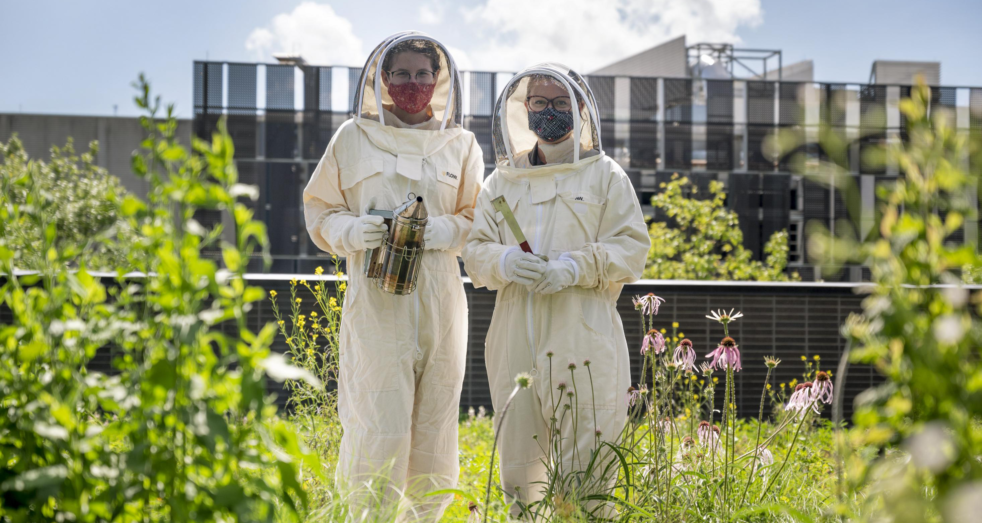With the summer semester starting and COVID restrictions being lifted in outdoor environments, an unlikely group has increasingly become the subject of research from all corners of the Institute.
The Urban Honey Bee Project is a unique program at Tech that provides researchers, from undergraduate to professional, with honey bees to study for various technical and intellectual endeavors.
The project is spearheaded by Dr. Jennifer Leavey, a Principal Academic Professional at Georgia Tech’s School of Biology.
Leavey is the director of the Urban Honey Bee Project, and is dedicated to allowing students and faculty the opportunity to study the bees, while continuing to study the effects of urbanization on the native honey bee population.
“The Urban Honey Bee Project is widely utilized by [students and faculty] at the Institute”, said Leavey.
“We of course have more traditional life sciences researchers studying the effects of urbanization on honey bees, but we also have researchers making strides in AI, wing construction and even solar panel design.”
The bees not only provide the Tech community with a fantastic amount of information for a variety of academic fields, but continue to contribute to the thriving ecosystem that the Institute strives to foster around campus.
In 2016, the Institute was declared a level II arboretum, a testament not only to the dedication of Institute faculty in fostering an eco-friendly community, but also to the pollination efforts of the honey bees around campus.
The bees colonies are currently located on the roofs of both the CULC and the Kendeda building, but plans are currently in place to add an additional hive to the newly constructed Ecocommons on west campus.
“The new hive will be located past the slides on the bottom level of the EcoCommons,” said Dr. Leavy. “We actually got the Decatur Makerspace to construct a special hive body to house the bees in. It’s essentially an 8 foot tall column that will allow the bees to come and go freely at the top entrance without coming into contact with the Georgia Tech community below.”
The newly designed hive body is a promising step forward in the housing of the bees.
While some may be concerned about the danger of being stung with bees
nearby, the new design of the hive will allow students to be at ease while ensuring that the natural patterns of the bees are disturbed as little as possible.
“The EcoCommons actually present an interesting opportunity in that they are filled with Tulip Poplar trees, which are some of the best native trees for the honey bees to use for their honey production”, said Dr. Leavy.
The future undoubtedly looks bright for the bees, and with further research, the future will continue to look bright for the Institute community at large.
